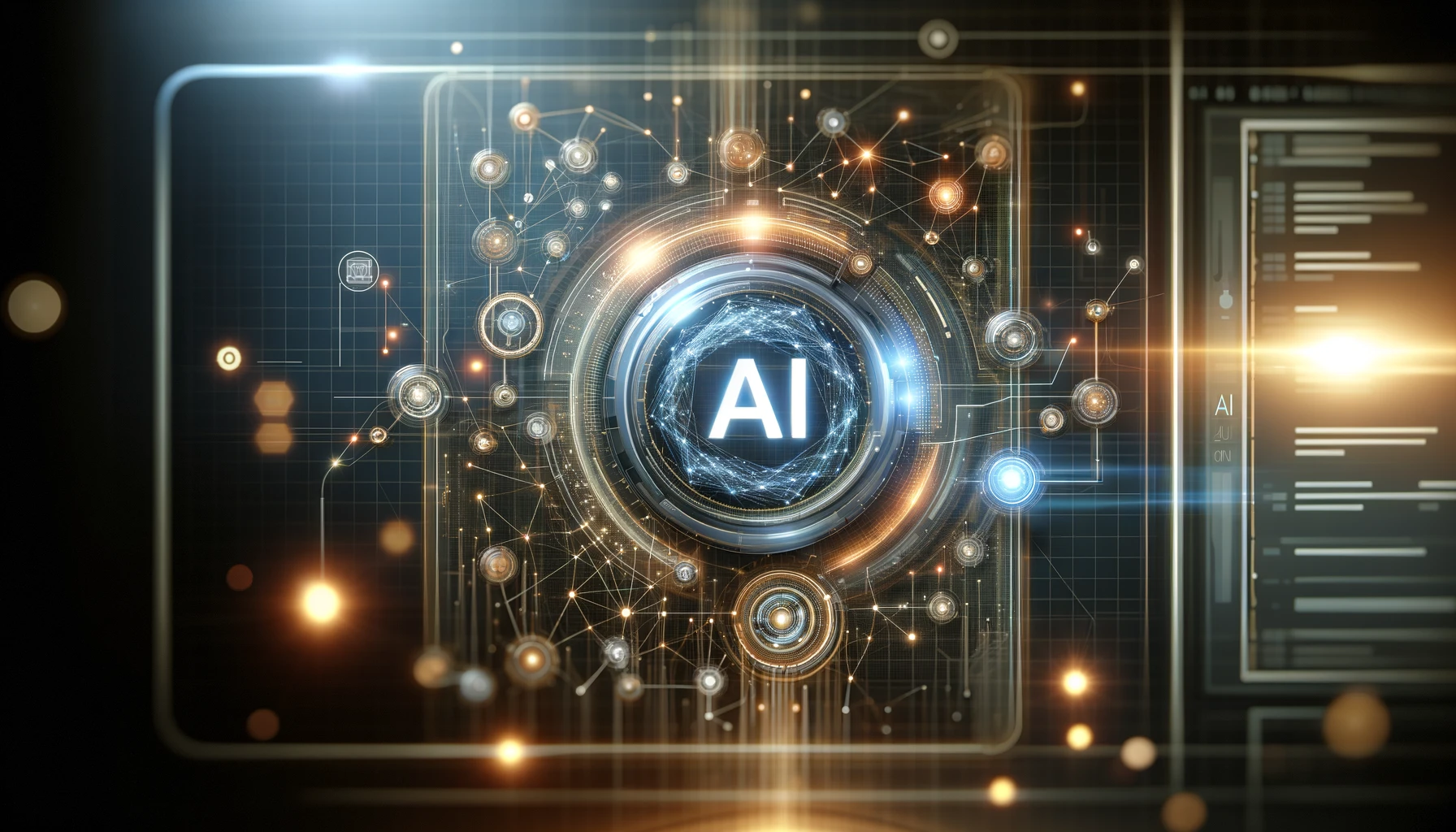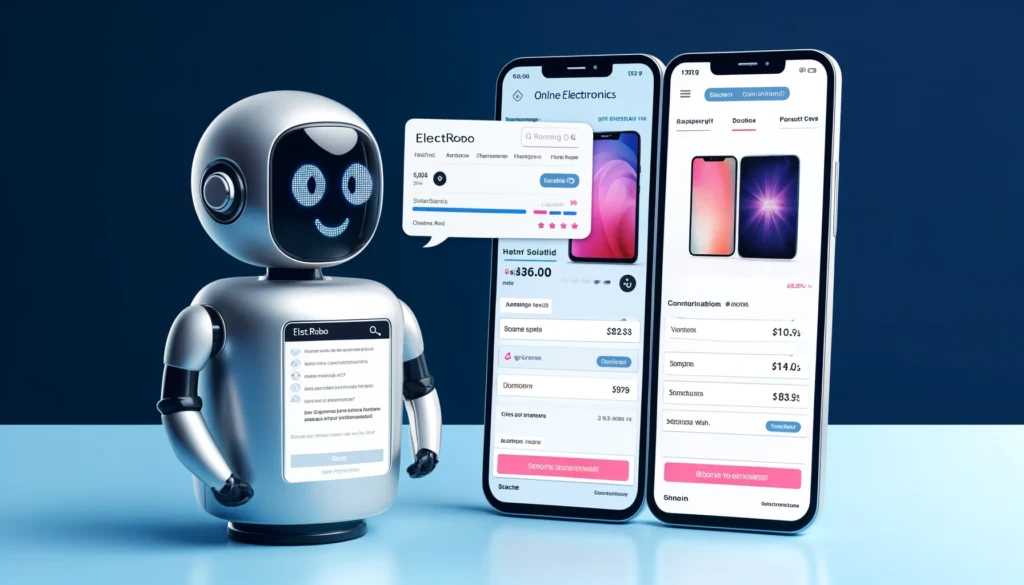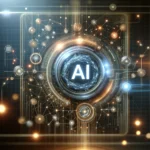
All the content and images in this blog were created using AI.
Introduction
The digital marketing landscape is experiencing a revolutionary transformation due to advancements in Artificial Intelligence (AI). Evolving AI technologies reshape brand interactions with consumers, delivering unprecedented personalization and efficiency.This blog examines AI's dynamic role in revolutionizing digital marketing strategies, enhancing customer engagement, and driving business growth.
The Power of Personalization
AI's most significant impact in digital marketing is its precision personalization. Unlike traditional strategies that target broad demographics, AI delves into individual consumer behaviors and preferences. This approach lets marketers craft messages and offers tailored to the right person at the right time. For example, AI algorithms increase conversion rates by recommending products based on past purchases, browsing history, and search patterns.
FOR EXAMPLE
Imagine you run an online retail store specializing in outdoor apparel. Integrating AI into your marketing strategies enables offering a level of personalization that feels almost bespoke to each customer. Here's how it works

Here is the image depicting an online retail store’s homepage, personalized for a customer interested in hiking. This visual showcases AI personalization in practice, featuring a lightweight jacket and other hiking gear tailored to the customer’s interests.
Digital Marketing Predictive Analytics Predicting Consumer Behavior:
Predictive analytics harness AI's power to accurately forecast future consumer behaviors. By analyzing data from various touchpoints, AI models identify trends and patterns that shape proactive marketing strategies. This allows businesses to anticipate needs, optimize inventory, and tailor marketing messages before demand changes. Such proactive measures not only boost customer satisfaction but also ensure more efficient use of marketing resources.
FOR EXAMPLE
magine a company that sells beauty products online. By leveraging AI-driven predictive analytics, this company can significantly enhance its marketing strategies and customer engagement.
For instance, AI analyzes the purchasing patterns and browsing behaviors of thousands of visitors to the company's website. It identifies a trend: customers who buy anti-aging creams often explore eye creams within three months. Armed with this insight, the company can predict when these customers might be interested in eye creams based on their previous purchases.
Targeted Email Campaigns: About two months after a customer purchases an anti-aging cream, the company sends them an email. This email features educational content about the benefits of eye creams and showcases their best-selling eye creams, perhaps accompanied by a limited-time offer.
Personalized Recommendations: The website’s recommendation system is adjusted so that whenever customers who bought anti-aging creams log in, they see eye creams prominently displayed as “recommended for you.”
Proactive Restocking: The company uses these predictive insights to adjust their inventory, ensuring a higher stock level for eye creams in anticipation of increased demand.
Optimized Advertising: Knowing that these customers might be moving towards a purchase decision, the company tailors its social media advertisements to highlight customer testimonials and before-and-after photos of those who used both anti-aging and eye creams.
This predictive approach not only boosts sales with timely, relevant offers but also enhances customer satisfaction by providing value when customers are most receptive. Consequently, the company sees increased revenue and builds stronger, more personal connections with its customers

Here is the image depicting an online beauty product store’s website, featuring a personalized recommendation section for a customer. This visual represents how predictive analytics might be used to tailor website content, showcasing eye creams as recommended products based on the customer’s previous purchases of anti-aging creams.
Chatbots and Virtual Assistants: Enhancing User Interactions:
AI-powered chatbots and virtual assistants are transforming customer service in digital marketing. Available 24/7, these tools manage inquiries, resolve issues, and facilitate transactions autonomously. They continuously learn from interactions, refining their responses to offer personalized service. This constant availability and tailored interaction significantly enhance the customer experience, building loyalty and trust.
FOR EXAMPLE
Consider an online electronics retailer that uses an AI-powered chatbot named 'ElectroBot' to enhance customer support. From the moment customers land on the website, ElectroBot is ready to assist.
When a customer arrives looking for the latest smartphones, ElectroBot instantly greets them and offers help. If the customer wants to compare two popular models, ElectroBot quickly displays a side-by-side comparison of their features, prices, and customer reviews.
ElectroBot can also address related queries, such as case options or financing plans. For deeper technical questions or more personalized assistance, ElectroBot smoothly transitions the conversation to a human agent, ensuring continuous support.
This interaction highlights how virtual assistants like ElectroBot can significantly enhance the shopping experience by providing immediate, relevant information and maintaining high levels of engagement without direct human intervention.

Here is the image depicting an online electronics store’s website interface, featuring a chatbot interaction. This visual showcases how a virtual assistant named “ElectroBot” assists a customer with a smartphone comparison.
Content Creation with AI:
AI plays a crucial role in content creation, helping marketers keep up with the demand for fresh, relevant content. AI tools swiftly and efficiently generate creative copy for articles, social media posts, and ad campaigns. For instance, AI-driven software analyzes high-performing content across the web, identifying successful themes and suggesting new topics likely to captivate audiences. This ability allows marketers to consistently produce compelling content that resonates with their audience.
Half of the content on our Instagram is generated by AI.
FOR EXAMPLE
Imagine a boutique marketing agency specializing in social media content, leveraging AI-driven tools to streamline and enhance its content creation process. This integration significantly boosts both efficiency and creativity.
The agency employs an AI tool to analyze current trends and audience engagement across various social platforms. From this analysis, the AI suggests themes likely to resonate with the target audience, such as 'eco-friendly living' or 'DIY home improvement projects.'
Using these insights, the AI assists in generating initial content drafts. For example, in an Instagram campaign focused on eco-friendly living, it produces high-quality image captions and blog post outlines that highlight sustainable practices and green products.
Furthermore, the AI adjusts the language and tone of the content to match the brand's voice and audience preferences, ensuring personalization and authenticity. After human team members review and refine the drafts, the content is scheduled for publication, keeping the agency's social media feeds lively and engaging.

Here is the image depicting a creative workspace involved in AI-assisted content creation for a marketing agency. This visual captures how AI software suggests trending topics and aids in the creative process, combining technology with creativity in modern marketing.
SEO and Ad Optimization:
AI also plays a crucial role in search engine optimization (SEO) and ad targeting. It can analyze data from search engines and social media to optimize website content and ads, improving visibility and click-through rates. AI-driven A/B testing and analytics allow marketers to fine-tune campaigns in real-time, ensuring that marketing dollars are invested in the most effective strategies.
FOR EXAMPLE
The startup utilizes an AI platform that analyzes search engine data and social media trends to identify optimal keywords for eco-friendly products. This tool suggests high-potential keywords and provides insights on structuring content to enhance SEO rankings.
For their PPC (pay-per-click) ad campaigns, the AI system optimizes real-time bidding and ad placement based on user engagement analysis across various platforms. For example, it might show that video ads on social media achieve higher engagement than text ads, prompting a strategic shift in focus.
Moreover, the AI continuously tests different ad variations through A/B testing to refine messaging, imagery, and calls to action according to user responses. This dynamic approach ensures the startup's advertisements are optimized for maximum impact and ROI.
With these AI-enhanced strategies, the startup not only boosts site traffic but also improves conversion rates, making its marketing efforts more cost-effective and targeted

Here is the image depicting a digital marketing team analyzing data for SEO and ad optimization in an office setting. This visual showcases the use of advanced analytics and real-time performance metrics, highlighting the modern, tech-savvy environment of today’s digital marketing professionals.
AI is not just a technological trend; it is a pivotal force in digital marketing, setting the pace for the future. As AI continues to evolve, its integration into digital marketing strategies offers more personalized, efficient, and engaging practices. Businesses that adopt AI early will secure a significant competitive advantage in understanding and satisfying their customers.
Embrace the future of marketing today! Integrate AI into your digital marketing strategy to unlock unprecedented levels of efficiency and engagement. Contact us to learn how our AI solutions can boost your marketing efforts and propel your business forward




